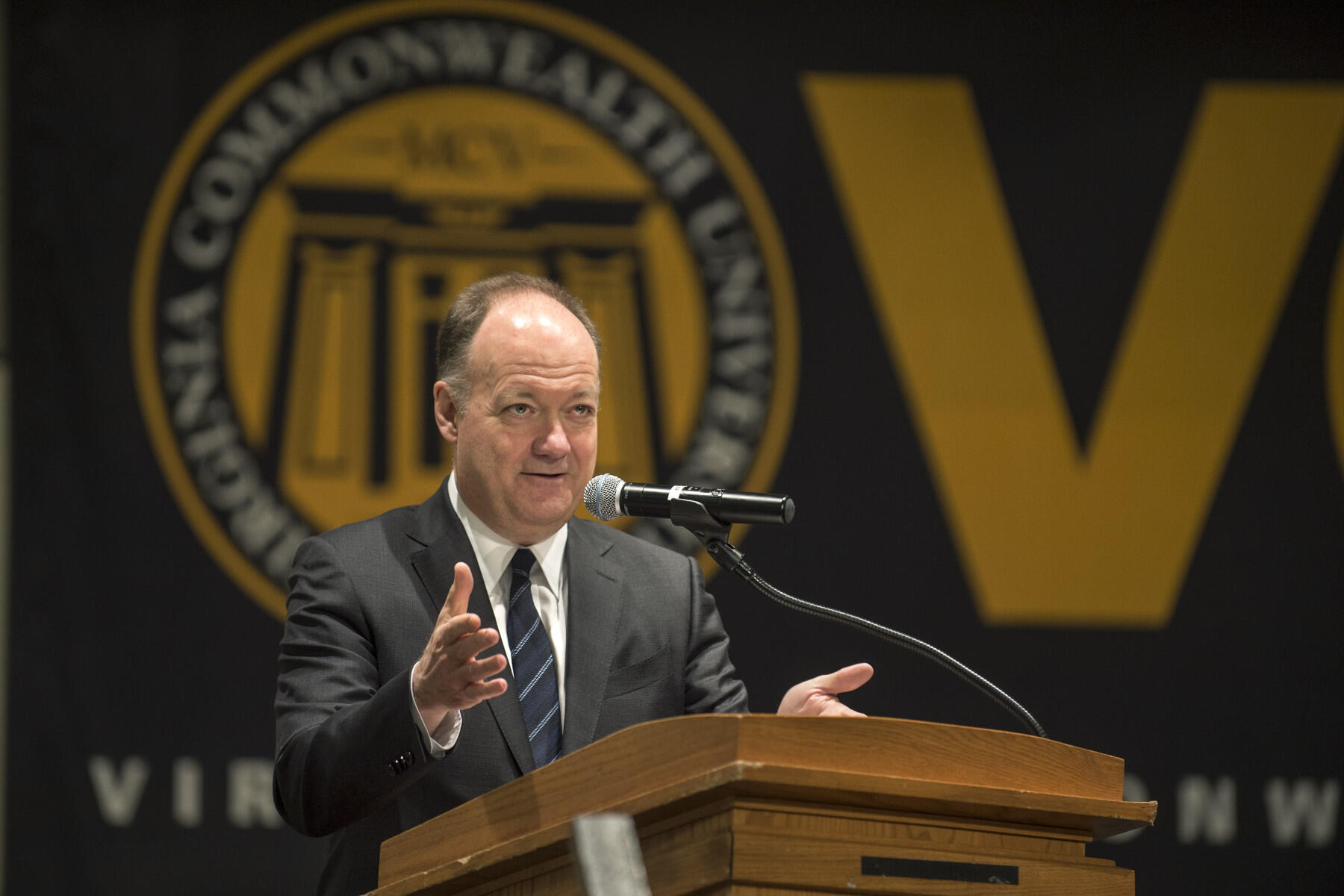April 6, 2018
At symposium, Georgetown president says universities should embrace influential role in speech debates
Share this story

During a speech at Virginia Commonwealth University on Thursday, John DeGioia, Ph.D., president of Georgetown University, said institutions of higher education bear a critical responsibility to take the same “restless and relentless” style of inquiry that marks their approach to scholarship and apply it to the complex tension between freedom of expression and respect for diversity and inclusion.
DeGioia, the keynote speaker at a VCU Faculty Senate symposium on academic freedom and freedom of speech, said college students today seek a more nuanced balance between freedom of expression and inclusion than they have in the past — “a balance they see missing in the uncompromising positions of their elders.” University administrators and faculty members cannot look away from this emerging attitude, he said.
“If we engage this tension as universities, we will find our way to the truth together,” DeGioia said.
DeGioia has served as Georgetown president since 2001. Previously, he was a senior administrator and faculty member in the Department of Philosophy at the university, which is also his alma mater. He is considered a leading expert on academic freedom and freedom of speech on college campuses in the United States, and The Atlantic named him a Brave Thinker in 2012 for “casting his school as a sentinel for the free exchange of ideas.”
DeGioia said colleges and universities are uniquely equipped to tackle the complex debates surrounding the topic of freedom of expression.
No other institutions engage the questions of our differences the way that we do.
“No other institutions engage the questions of our differences the way that we do.”
He said universities also play an increasingly active and influential role in contemporary life that makes engagement with challenging topics essential.
Higher education “is no longer an ivory tower,” he said. “We are fully immersed in our world — nothing separates us from the real world.”
DeGioia spoke to the audience of VCU faculty members about the critical function that academic freedom plays on college campuses, saying it provides security for scholars to pursue the research and search for “truth” that is at the heart of the mission of higher education. He said academic freedom differs from freedom of speech in a key way. Freedom of speech means the free expression of ideas and opinions, no matter the opinion or the person expressing it, he said, but academic freedom requires evidence and therefore is marked by a higher standard.
“Academic freedom comes with a test of quality that freedom of speech does not,” he said.
The Faculty Senate symposium also featured a panel discussion on academic freedom and freedom of speech, as well as small-group discussions on the topics. Sarah Johns, associate university counsel at VCU, served as the panel moderator. Panelists included Madelyn Wessel, university counsel at Cornell University, and Brian Turner, Ph.D., chair of the Department of Political Science at Randolph-Macon College and a member of the national executive committee of the American Association of University Professors.
Subscribe to VCU News
Subscribe to VCU News at newsletter.vcu.edu and receive a selection of stories, videos, photos, news clips and event listings in your inbox.











